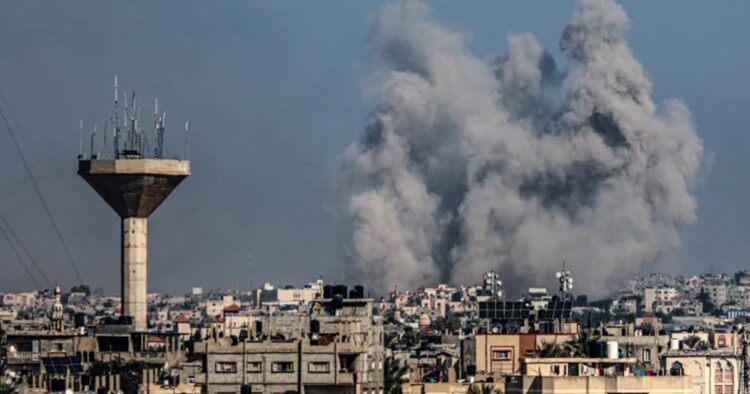In a recent interview, Israeli war cabinet minister and former military chief, Gadi Eizenkot, highlighted the importance of reaching a deal to ensure the safe release of captives held in the Gaza Strip. Eizenkot, who experienced a personal loss with the death of his youngest son in Gaza, asserted that the fate of the captives should be a top priority, even if it means missing opportunities to target Hamas leaders.
Eizenkot dismissed the likelihood of a lightning raid similar to the 1976 Entebbe operation, stating that the hostages are scattered, some even underground, making such a mission extremely unlikely. According to Israeli estimates, around 130 captives remain in Gaza, with 27 reported dead. Over 100 were released during a November truce following a cross-border attack by Hamas on October 7.
The minister emphasized the difficulty of rescuing the remaining captives without a deal, acknowledging that efforts are ongoing, but the likelihood of success is low. He also stressed that the broader war aims would remain valid after any temporary ceasefire.
Internal Disagreements within Israeli Leadership
Eizenkot’s comments reflect a growing internal rift among Israel’s political and military leaders regarding the direction of the offensive in Gaza, now in its fourth month. Prime Minister Benjamin Netanyahu and Defense Minister Yoav Gallant advocate for continuing the fighting until Hamas is crushed, asserting that only military action can secure the release of captives.
Hamas, on the other hand, seeks an end to the war before engaging in discussions about releases, demanding the release of thousands of Palestinians imprisoned by Israel in exchange for those held captive in Gaza. Eizenkot is one of four members of the war cabinet, and his perspective differs from that of Netanyahu and Gallant.
Decision to Avoid Attack on Hezbollah
Eizenkot revealed that he convinced officials in the war cabinet to hold off on an attack on Hezbollah in Lebanon in the days following the Hamas attacks. He confirmed that a preemptive strike was called off at the last minute during the early days of the war. He described his opposition to such a strike during an October 11 cabinet meeting, asserting that their presence prevented Israel from making a grave strategic mistake.
The former military chief stated that both Israel and Hezbollah have signaled a desire to avoid war but affirmed their readiness to fight if necessary. Eizenkot also rejected claims of a decisive blow against Hamas, disputing Defense Minister Gallant’s assertion that the Hamas command structure in northern Gaza had been disabled.
The situation remains complex, with internal disagreements among Israeli leaders and ongoing challenges in achieving military objectives in Gaza.

















Comments